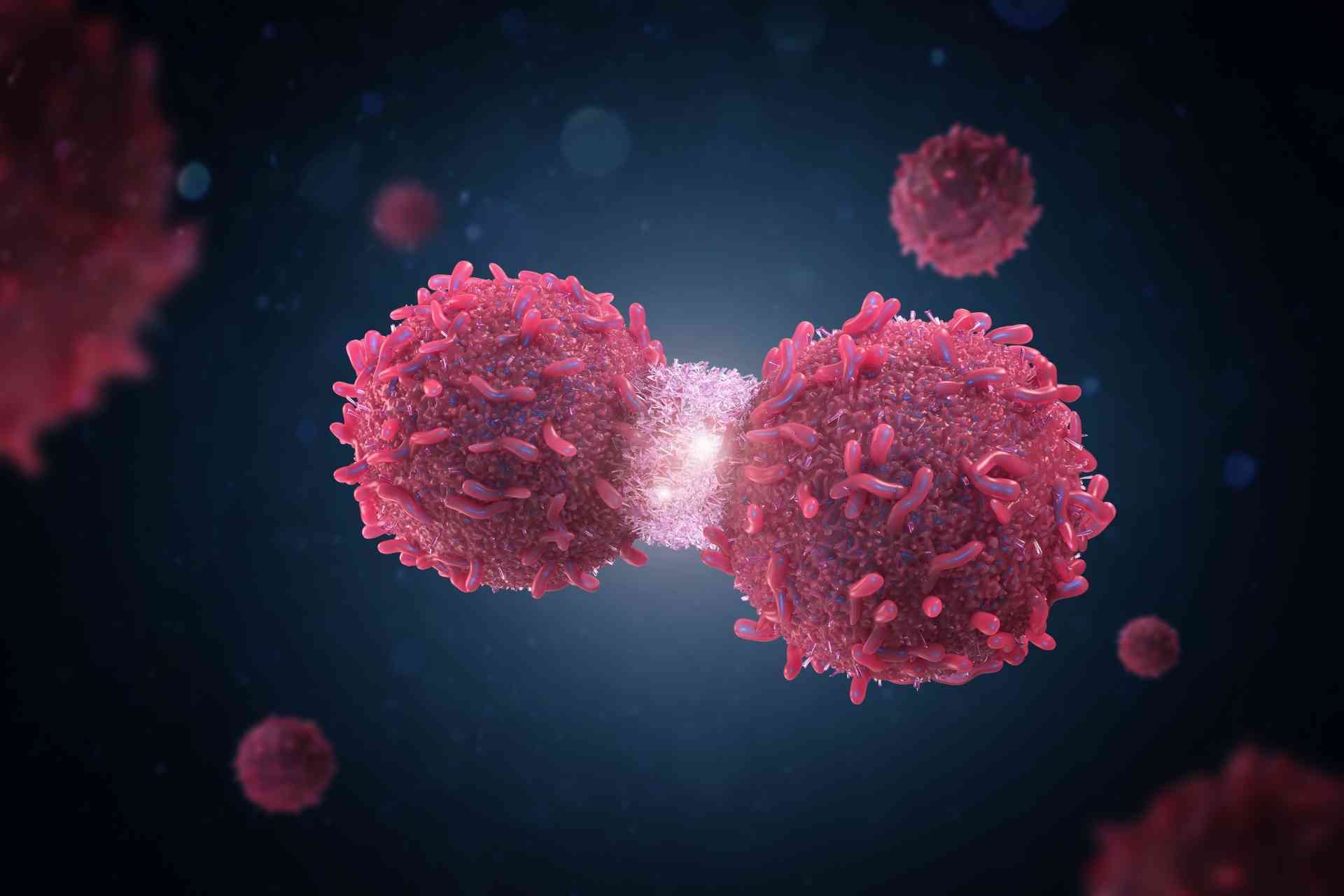What is already known on this topic
Studies have suggested that tumor-dwelling microbes can influence a person’s cancer risk, cancer prognosis and response to treatment. However, it’s unclear whether the tumor microbiota plays any significant role in tumor progression.
What this research adds
Working in a mouse model of breast cancer, researchers found that during metastatic colonization, intra-cellular bacteria can travel through the circulatory system with the cancer cells. The bacteria are able to modulate actin, a component of the cell’s skeleton, and promote the survival of cancer cells. Using antibiotics to kill intra-cellular bacteria didn’t affect the tumor’s initial growth, but it reduced the formation of metastases in the lung. Specific bacteria strains isolated from the tumor-resident microbiota promoted metastasis formation in mice.
Conclusions
The findings suggest that the tumor-resident microbiota can play an important role in promoting cancer metastasis.
Tumor-dwelling microbes have been documented for a variety of cancer types, but their biological functions remain unclear. New research indicates that the tumor-resident microbiota can promote the formation of metastases as well as the survival of cancer cells during tumor progression.
The findings, published in Cell, suggest that the tumor microbiota plays an important role in promoting cancer metastasis. Modulating the tumor-resident microbiota may be worth exploring for advancing oncology care, the researchers say.
“Our study reveals that the cancer cell’s behavior is also controlled by the microbes hiding inside tumors, the majority of which were originally thought to be sterile,” says study senior author Shang Cai at the Westlake Laboratory of Life Sciences and Biomedicine.
Recent studies have shown that many cancer types have their own unique populations of bacteria residing inside of tumor cells. Mounting evidence also suggests that tumor-dwelling microbes can influence a person’s cancer risk, cancer prognosis and response to treatment. However, it’s unclear whether the tumor microbiota plays any significant role in tumor progression.
To address this question, Cai and his colleagues analyzed a mouse strain that spontaneously develops breast cancer.
Hijacked cells
In the normal and cancer tissues of the mice, the researchers detected different types of bacteria, including Staphylococcus, Enterococcus, Streptococcus, and Lactobacillus. Compared with normal tissues, breast cancer tissues had lower levels of microbes that do not require oxygen for growth. Mice with tumors also had substantial amounts of bacteria inside cancer cells, as well as bacterial species similar to those found in human breast cancers, the researchers found.
At advanced stages, tumor-bearing mice develop lung metastases. While studying these mice, the researchers found that the presence of tumor-resident microbiota was associated with lung metastases. This suggests that intra-cellular microbes could be involved in metastasis formation.
In fact, depleting intra-cellular bacteria with antibiotics reduced the formation of metastases in the lung, although it didn’t affect the tumor’s initial growth. The team found that microbes living inside cancer cells travelled through the circulatory system with those cells during metastasis formation.
“Tumor cells hijacked by microbes could be more common than previously thought, which underscores the broad clinical value of understanding the exact role of the tumor-resident microbial community in cancer progression,” Cai says.
Promoting metastasis
Next, the researchers set out to investigate how tumor-resident bacteria influence the formation of metastases. They found that the bacteria are able to modulate actin, a component of the cell’s skeleton, thus boosting the strength of cells against mechanical stress in the bloodstream. This increased resistance to stress can promote cell survival during tumor progression.
By injecting specific tumor-resident bacteria, including Staphylococcus xylosus and Lactobacillus animalis, into the mice’s primary tumor, the researchers showed that the tumor microbiota can promote the formation of metastases.
“We were surprised initially at the fact that such a low abundance of bacteria could exert such a crucial role in cancer metastasis. What is even more astonishing is that only one shot of bacteria injection into the breast tumor can cause a tumor that originally rarely metastasizes to start to metastasize,” Cai says. “Intracellular microbiota could be a potential target for preventing metastasis in broad cancer types at an early stage, which is much better than to have to treat it later on.”
However, Cai notes, the findings do not mean that using antibiotics during cancer treatment will benefit patients. Future studies should determine how to manage the tumor-residing bacteria to improve cancer treatment in people, he says.









